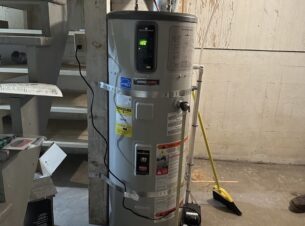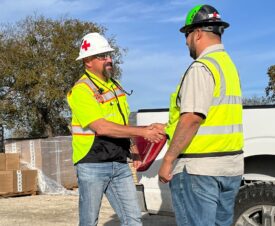Chicago – The American Society of Plumbing Engineers (ASPE) and the American Rainwater Catchment Systems Association (ARCSA) are collaborating to jointly develop and publish an American National Standard on stormwater harvesting system design for direct and indirect end-use applications. This partnership leverages the expertise of members from the premier association representing plumbing engineering and design and the leading organization in the United States promoting rainwater use. This is the second American National Standard that ASPE and ARCSA have joined to develop; the first, ARCSA/ASPE 63: Rainwater Catchment Systems, is currently undergoing public review and will be submitted for approval by the American National Standards Institute (ANSI) later this year.
“Partnering with ARCSA on industry initiatives such as design standards and professional development workshops has helped not only our members, but also the public at large through the dissemination of proper guidelines for the design of safe, sustainable plumbing systems,” says ASPE President William F. Hughes Jr., CPD, LEED AP, FASPE. “We are very proud to be associated with ARCSA once again to develop a standard that will positively impact the environment, municipalities, the plumbing industry, and ultimately the public.”
“In partnering with ASPE on the rainwater catchment system design standard, ARCSA realized an important, proactive ally in promoting the sustainable use of alternate water supplies,” says Neal Shapiro, ARCSA Secretary and Watershed Management Program Coordinator for the City of Santa Monica Office of Sustainability and the Environment. “Rainwater is one readily accessible and relatively clean resource when harvested from roofs. Stormwater is another accessible, but larger, resource for municipalities and businesses to harvest for beneficial uses. Thus, the logical next step after the rainwater standard is a parallel stormwater harvesting design standard, and ARCSA is excited to continue its winning relationship with ASPE to develop this new document and help promote secure, reliable, and local water resource management.”
ASPE and ARCSA identified the need for a stormwater use standard due to growing concerns about available water supplies, combined sewer overflows, and watershed pollution in many parts of the country. The new standard will establish requirements for designing post-construction alternative stormwater systems in lieu of potable water systems for new and redeveloped projects, including source control methods, site design parameters, stormwater treatment methods, and system maintenance.
“As traditional municipal water supplies undergo dramatic reliability challenges, it is incumbent upon all professionals involved in water delivery systems and watershed management programs to look to all local water resources, no matter how untraditional, to fill the void,” says Shapiro.




Join the conversation: